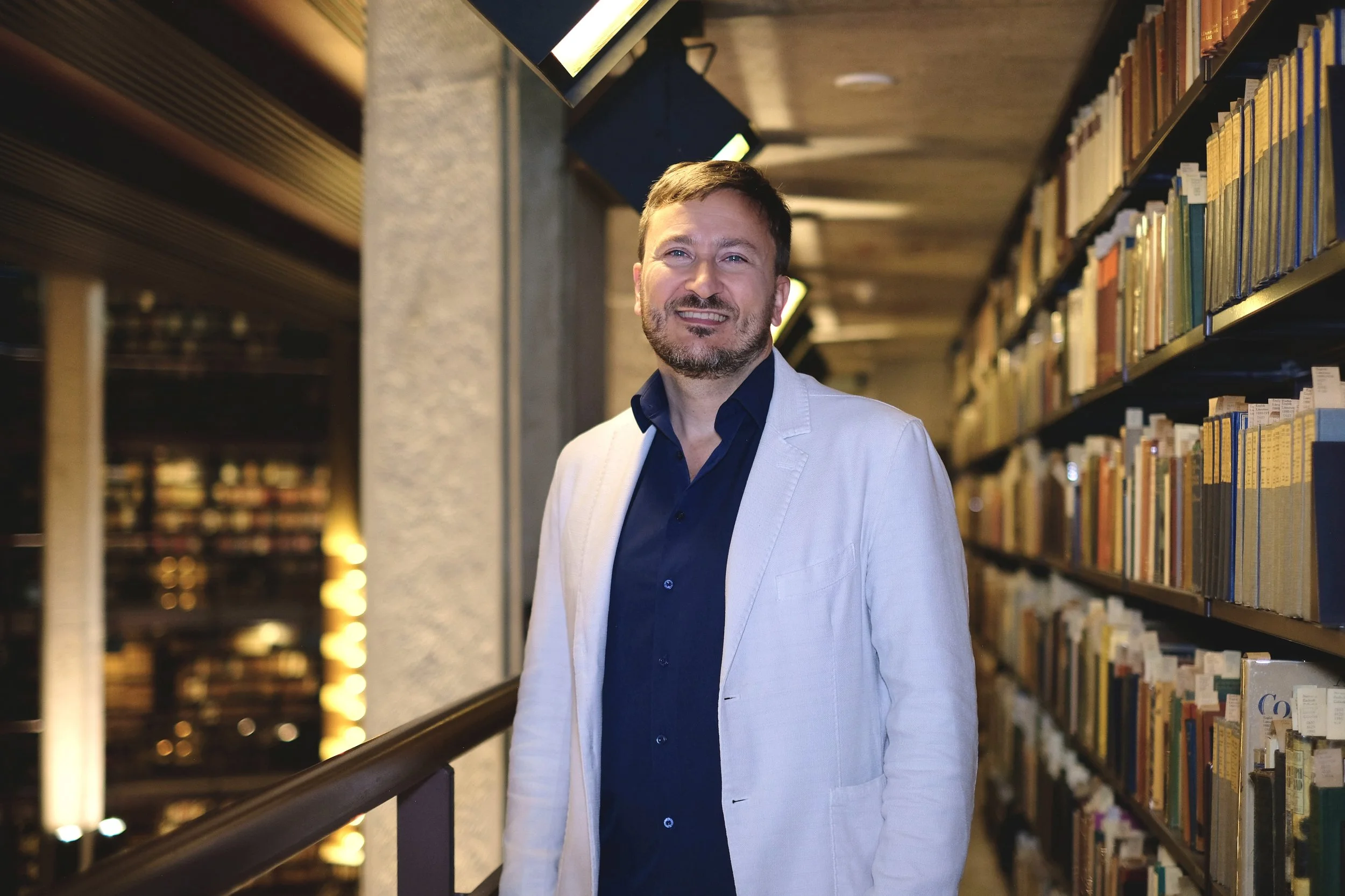WHAT’S HAPPENING
Here’s what we’re thinking about, talking about, and working on at the Schwartz Reisman Institute.
When the algorithm is wrong: A new partnership calls out racism in AI systems
A new partnership co-led by Karina Vold is confronting racism in AI systems—highlighting how tools like facial recognition and LLMs disproportionately harm Black and racialized communities, and calling for greater public awareness and equitable governance of AI in Canada.
Rethinking knowledge in the age of AI
SRI Faculty Affiliate Paolo Granata reflects on his new book Generative Knowledge: Think, Learn, Create with AI, rethinking how artificial intelligence reshapes learning, research, and creativity by positioning AI as a co-creative partner in intellectual life rather than merely a tool for automation.
Beyond algorithms: Travis LaCroix on AI and the value alignment problem
SRI Faculty Affiliate Travis LaCroix explores the social and political dimensions of AI ethics in his new book Artificial Intelligence and the Value Alignment Problem, arguing that meaningful alignment requires confronting questions of power, justice, and whose values shape emerging technologies.
Geoffrey Hinton and Jeff Dean in conversation: Recorded live at NeurIPS
A new Radical Talks podcast episode features Geoffrey Hinton and Google Chief Scientist Jeff Dean in a live conversation recorded at NeurIPS 2025, reflecting on the past, present, and future of artificial intelligence—alongside the announcement of the new Hinton Chair at the University of Toronto.
Call for 2026 Schwartz Reisman Institute Graduate Fellows now open
The Schwartz Reisman Institute is now accepting applications for its 2026 Graduate Fellowships, supporting U of T researchers advancing responsible, human-centred approaches to AI and emerging technology. The one-year fellowship includes a $7,500 stipend and access to SRI’s interdisciplinary research community. Apply by February 8, 2026.
Schwartz Reisman Institute releases 2025–2028 strategic plan
The Schwartz Reisman Institute for Technology and Society has launched its 2025–2028 strategic plan, outlining a focused vision for steering advanced AI toward safety, ethics, and the public good. Centered on safe AI systems, data integrity, and the social impacts of technology, the plan sets out priorities to advance interdisciplinary research, translate insights into real-world policy impact, and strengthen global leadership in AI governance.
Geoffrey Hinton awarded Queen Elizabeth Prize for Engineering
Schwartz Reisman Institute Advisory Board member Geoffrey Hinton has been awarded the 2025 Queen Elizabeth Prize for Engineering, recognizing his pioneering contributions to the development of modern machine learning and artificial intelligence. Presented by King Charles III at St James’s Palace, the honour celebrates Hinton’s lifelong impact on both the science and societal understanding of AI.
Hinton and Li headline Who’s Afraid of AI? conference on the futures of intelligence
AI visionaries Geoffrey Hinton and Fei-Fei Li headlined Who’s Afraid of AI?, a landmark University of Toronto conference exploring how artificial intelligence is reshaping culture, creativity, and collective imagination. Presented in part by the Schwartz Reisman Institute, the event brought together artists, technologists, and scholars to envision more human-centered futures of intelligence.
Therapy bots: Regulating the future of AI-enabled mental health support
AI therapy chatbots promise accessible mental health support—but without proper oversight, they risk misleading users and causing harm. The Schwartz Reisman Institute’s new policy brief outlines how Canada can regulate these tools to protect public trust and ensure AI innovation truly serves human wellbeing.
The big picture of dangerous capability evaluations: David Duvenaud at the Seminar Series
How can we stay in control when AI systems surpass human intelligence? In a recent SRI Seminar, Schwartz Reisman Chair David Duvenaud explored the frontier of AI safety, alignment, and governance, introducing new research on “dangerous capability” evaluations and control protocols designed to detect when AI models become too powerful to oversee.
SRI appoints Bruce Schneier as visiting senior policy fellow
Global security expert and author Bruce Schneier—known for reshaping how the world understands security, privacy, and trust—has joined the University of Toronto’s Munk School of Global Affairs & Public Policy and the Schwartz Reisman Institute for Technology and Society (SRI) as a visiting senior policy fellow for 2025–26.
David Duvenaud reflects on post-AGI workshop
SRI Chair David Duvenaud shares reflections from the Post-AGI workshop, highlighting the value of diverse perspectives and the challenges of envisioning post-AGI trajectories.












